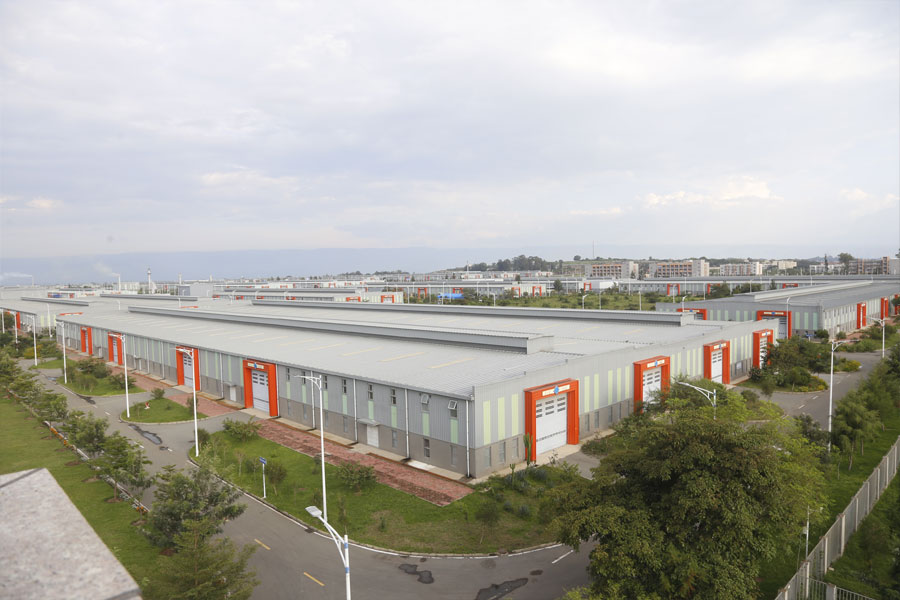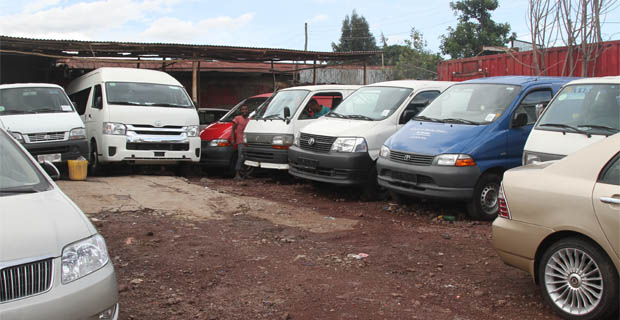
Radar | Jul 03,2021
Five companies operating in Hawassa Industrial Park have rejected the rights of nearly 6,000 employees to form labour unions.
Managers of Arvind Lifestyle Apparel, JP Textile, JP Garment, Isabella Socks, and Everest Textile have declined to allow their workers to form labour unions despite a decision to organise workers employed by companies in the Park. A tripartite meeting was held two months ago between officials of the former Ministry of Labor & Social Affairs, representatives of the Industrial Parks Development Corporation, and senior managers of companies operating in the Park. The executives of 15 companies operating in the Park allowed their employees to form and join labour unions.
Leaders of the Textile, Leather & Garment Workers' Trade Union wrote a letter to the CEOs of the five companies three weeks ago. They demanded explanations from the senior executives of these companies for the rationale for rejecting workers rights to organise for a collective bargain.
Yidinekachew Matewos, human resources manager at JP Garment, specialising in woven shirts and loungewear, said the company was not asked to consent to form a labour union.
“The CEO of JP Garment already sent a letter to the Ethiopian Investment Commission asking for an explanation on the matter,” he told Fortune.
JP Garment employs 718 people.
A senior manager of Arvind Lifestyle, who requested anonymity, admits the company's workers have formed no labour union. Close to 700 people work at Arvind.
“But this does not mean that the company is against the formation of labour unions,” he said.
Executives of JP Textile, Isabella Socks, and Everest Textile were not available for comment.
JP Textile and Isabella Socks employ 715 and 712 workers, respectively, while Everest Textile leads the pack in Hawassa Industrial Park, employing the largest labour force of 2,911 workers.
Three other companies failed to let their workers form unions, according to people following the dispute. Ontex Hygienic is to relocate its factories outside the Park while Quadrant Apparel is yet to start operation. The third company, KGG Garments, is closing down its facility.
By constructing industrial parks along key economic corridors, Ethiopian authorities hoped to create jobs and boost export revenues attracting foreign investments. The federal government embarked on the development of industrial parks in 2011, building 10 industrial parks. Settled on 400ht of land, Hawassa Industrial Park was the first and the largest of these parks, employing close to 30,000 people. The companies operating in the park generated 114 million dollars in export revenues, with the United States and Europe buying the most.
Compared to many other countries, the workers are paid meagre wages, leading labour union organisers to push employers for better pay.
Elfnesh Tadele, a mother of one, has worked at TAL Apparel for the last five years. Her monthly salary stands at 1,300 Br, or 27 dollars at official exchange rates. It is a far lower wage compared to over 120 dollars workers in Kenya's apparel industry earn.
“My expectation from the labour union is to negotiate on behalf of workers and increase their salaries,” she told Fortune.
If employers do not cave in, leaders will form labour unions without their consent, warns Angesom Gebreyohannes, president of the Federation, representing 54,000 members.
However, the number of companies that have consented to the formation of labour unions jumped last month from two to 15, employing 22,705 workers. Workers for Hong Kong-based TAL Apparel, which began operation in 2017 and currently exports dress shirts to the US, are among the employees who have formed and joined labour unions.
PUBLISHED ON
Oct 30,2021 [ VOL
22 , NO
1122]

Commentaries | Feb 06,2021

Radar | Mar 23,2019

Fortune News | Dec 04,2022

My Opinion | Aug 29,2020

Fortune News | May 25,2019

Dec 22 , 2024 . By TIZITA SHEWAFERAW
Charged with transforming colossal state-owned enterprises into modern and competitiv...

Aug 18 , 2024 . By AKSAH ITALO
Although predictable Yonas Zerihun's job in the ride-hailing service is not immune to...

Jul 28 , 2024 . By TIZITA SHEWAFERAW
Unhabitual, perhaps too many, Samuel Gebreyohannes, 38, used to occasionally enjoy a couple of beers at breakfast. However, he recently swit...

Jul 13 , 2024 . By AKSAH ITALO
Investors who rely on tractors, trucks, and field vehicles for commuting, transporting commodities, and f...

Oct 25 , 2025
The regulatory machinery is on overdrive. In only two years, no fewer than 35 new pro...

Oct 18 , 2025
The political establishment, notably the ruling party and its top brass, has become p...

Oct 11 , 2025
Ladislas Farago, a roving Associated Press (AP) correspondent, arrived in Ethiopia in...

Oct 4 , 2025
Eyob Tekalegn (PhD) had been in the Governor's chair for only weeks when, on Septembe...